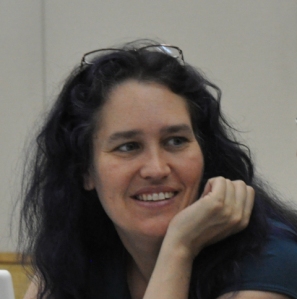I’ve often said that creating the software for Mightyverse is the smallest part of
our challenge. We are seeking to express the diversity of language to help people to
communicate what they want to say. More important than the software, are the people who
will help us make this happen.
I’d like to tell the story of our latest Mightyverse Hero, Christo Dimitrov, who
sent us this feedback several months ago:
This website is certainly useful for many people. Personally, I used it to translate
some phrases from English to Bulgarian.
But since my mother tongue is French, I have checked all the 529 phrases translated
from English to French. I am sorry to inform you that I have found many wrong
translations and, above all, countless (more than a hundred) spelling mistakes. In
particular, numerous accents and hyphens are missing. As you certainly know, the
absence of accents or hyphens is, in French writing, a major mistake.
If it could of some use for you, I can send you, by e-mail, the list of the 529
phrases with all needed corrections.
I decided to prioritize building the part of our web application which would let Christo,
plus other staff and volunteers, do bulk editing of the phrase text in Mightyverse.
Meanwhile, I asked: what led him to find Mightyverse and what was useful about it?
I found Mightyverse when searching on the net the translation in Bulgarian of the
French phrase “Plus on est de fous, plus on rit”, the equivalent in
French of the English “The more, the merrier”. Mightyverse gave me the
right translation which is : ” “Колкото повече хора, толкова
по-весело.”.
It was very helpful for me in spite of the fact that :
– I have Bulgarian origins (as my name let it guess) but being born in France
where I always lived, I have a rather passive knowledge of the Bulgarian
language.
– I have got several French-Bulgarian dictionaries but none of them gave me
the answer.
The advantage of Mightyverse is to offer the translation and pronunciation of many
phrases useful in everyday life and which are not easily found in ordinary
dictionaries. A drawback is the absence of search tool avoiding to have to go
through all the phrases to find whether the one you are interested in is in the list
or not.
And I was very curious… who was this person who would volunteer to help strangers
on the Internet with our wild and crazy mission?
I was a student of the “Ecole Polytechnique” in Paris and then I was a
civil engineer and a civil servant (in French : Ingénieur des Ponts et Chaussées). I
retired at the end of 2007.
 I have a deep interest in languages : French and
various foreign languages. At school, I learned English (7 years), Spanish (5 years)
and German (2 years) and, more recently, at the Paris University, Bulgarian (2
years).
I have a deep interest in languages : French and
various foreign languages. At school, I learned English (7 years), Spanish (5 years)
and German (2 years) and, more recently, at the Paris University, Bulgarian (2
years).
Moreover, I have tried to acquire basic knowledge in numerous other languages, for
instance : Italian, Greek, Turkish, Japanese, Russian, Portuguese and others.
I used to live in Paris but since my retirement, I live at Entrecasteaux, a small
village of Provence, in the South of France.
For the next month, Christo and I iterated on a simple spellchecker interface with him
finding bugs and me fixing them, until he was able to easily edit the whole list of
phrases. We even ran into to some interesting language challenges:
I was unable to understand some colloquial phrases so I have not change the existing
translation.
Could you give me a clue to the exact meaning of the following phrases :
– “Cat’s got your tongue”( I think the right translation
could be “Vous donnez votre langue au chat” but I am not quite sure of
it).
-” Is it a cavity ?” (I guess it relates to teeth but is it really the
case )
– “Try calling around” (What is the exact meaning of
“around” in that case)
– “What birds plunge through is not the intimate space in which you see
all forms intensified” (It is all Dutch to me ! – in French : Pour moi,
c’est du chinois !)
It was actually quite exciting to me to hear these questions. We think that every phrase
has a story, and someday we’ll be able to put in the database, but meanwhile, here
are the stories for these phrases:
“Cat’s got your tongue” is said when someone
is quiet and you want to get them to talk, often said to a shy child. Not clear what the
origin is, maybe just a silly thing you say and make the kid laugh… my mom used to
say it to me sometimes. Occasionally adults will say it to each other. It is not a very
common expression, but I would guess that most people know it anyhow. The full
expression would be “‘has the cat got your tongue?”
In French, “Tu as perdu ta langue ?” literally
means “Have you lost your tongue?” which you could, of course, also say in
English.
“Is it a cavity?” refers to a hole in your tooth
from tooth decay that a dentist would drill and fill with whatever they put in teeth.
“Est-ce une carie?” in French.
“Try calling around” means call a few people (on
the phone). “Essaie de passer quelques coups de
fil”
“What birds plunge through is not the intimate space in which you see
all forms intensified” (Christo writes “is all Dutch
to me!” – in French : “Pour moi, c’est du chinois!”) Wow
— someone must have translated this german poem into English and French:
Rainer Maria Rilke: Durch den sich Vögel
werfen (1924)
Durch den sich Vögel werfen, ist nicht der
vertraute Raum, der die Gestalt dir steigert.
Christo found the French version which reads:
“L’espace dans lequel s’engouffrent les oiseaux où s’accroît
ta stature”
Here is the complete poem
in English.
Along the way, we added a new editing interface to create alternate, better translations
of a phrase, and just this weekend, Christo verified all 764 phrases in French! We
applaud his heroic accomplishment.
We’re still working out some of the details of the editing software, but
we’ll be looking for volunteers who can help us check spelling, grammar and
correct transcriptions for other languages too. If you are reading this, are interested
in the project and want to help, please leave a comment and we would be delighted to
have you join us! It would be particularly exciting to connect with a Bulgarian speaker
who could help Christo become more fluent in the language of his origins.







 I have a deep interest in languages : French and
various foreign languages. At school, I learned English (7 years), Spanish (5 years)
and German (2 years) and, more recently, at the Paris University, Bulgarian (2
years).
I have a deep interest in languages : French and
various foreign languages. At school, I learned English (7 years), Spanish (5 years)
and German (2 years) and, more recently, at the Paris University, Bulgarian (2
years).







